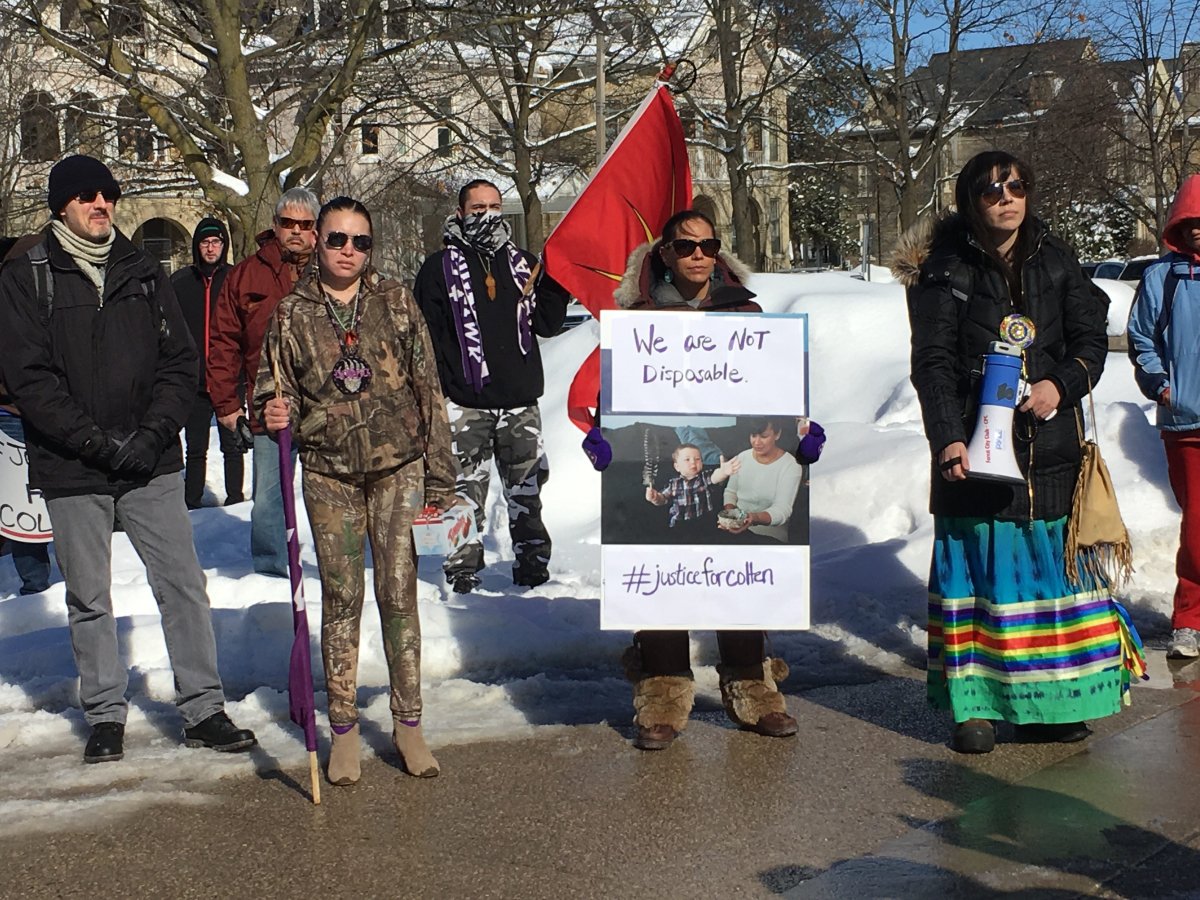Chants of “Justice for Colten” could be heard across Victoria Park, as a crowd of more than 100 people marched from the park’s main gates towards the courthouse Monday afternoon.

A Saskatchewan jury’s verdict Friday evening to acquit 56-year-old Gerald Stanley from a charge of second-degree murder in the shooting death of 22-year-old Red Pheasant First Nation’s man Colten Boushie has prompted an outcry across the country. Local Indigenous community members are among those calling the decision a clear sign of racism.
“We are tired of feeling second, we are tired of not mattering here,” said Lela George, the organizer of a peaceful rally that showed solidarity for the young man’s family and showed frustration with the justice system.
“We’ve all felt this injustice in our systems, we’ve all felt the racism, we’ve all seen it, we’re all a part of it, and we’re all made from the same cloth.”
Boushie was shot in the back of the head August 2016 while sitting in the driver’s seat of an SUV that was driven onto Stanley’s farm. Stanley says he accidentally killed Boushie while trying to scare a group of young people off his property.

Get breaking National news
Cameron Monkman, an Indigenous activist and musician known as Young Jibwe, told the crowd he wants to see Stanley convicted of murder.
- 4 dead, 17 wounded after being caught in crossfire in entertainment district in Birmingham, Alabama
- Hundreds defrauded in door-to-door Ontario scam, Canada-wide warrants issued
- Kenneth Law responsible for ‘luring’ Ontario teen into suicide death, parents allege
- Quebec’s public security minister accuses gangs of using teens ‘to do their dirty work’
“Colten, from what I understand, was on the path of healing and the traditional ways. He honoured that, he always looked out for his family, including his mother,” he explained.
A handful of London police approached the crowd as it assembled, asking organizers where they planned to march and inquiring whether anyone was aware of counter protests.
Before starting to walk, a small amount of tobacco was pressed into the gloved hands of members in the crowd. People were encouraged to hold it during the march towards the courthouse.
The beat of a drum joined the chorus of chanting voices, as the group started to march.
“We have a right to protest and to use our voices,” said George.
“Things need to change. We need a change, we’ve had enough.”












Comments